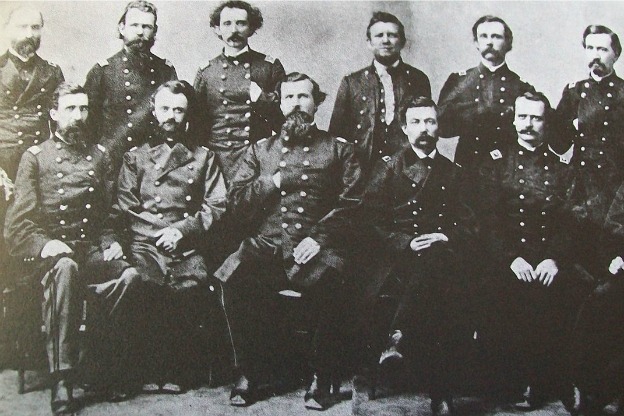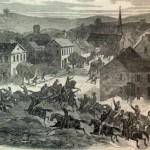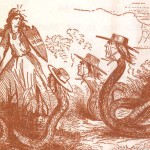In 1845, a young Ohio lawyer and his family settled in rural Huntington County, Indiana. Lambdin Milligan would have gone unnoticed in the history books, pursuing a law practice and running for a variety of local and state political offices, were it not for his extreme opposition to the Lincoln administration and for the treasonable actions he undertook in support of the South’s right to secede from the Union.
Milligan was a lifelong supporter of the politics of John C. Calhoun, holding that states possessed the right to nullify laws of the federal government if they did not agree with them. When the Civil War came, Milligan affirmed the right of Southern states to secede from the Union and the right of Southerners to keep their slaves. By 1863, his hatred of Abraham Lincoln, Indiana Republican governor Oliver Morton, and the war, led him to ally with antiwar radicals. In the summer of 1864, Milligan and other members of the group they called the Sons of Liberty hatched a plot to obtain a large cache of rifles from a military armory, free the Confederate prisoners of war being held at Camp Morton in Indianapolis, and lead an armed revolt to take over the state.
State and federal authorities got wind of the conspiracy and the plot never took form. But on October 5, a train with 50 troops left Indianapolis to journey north to Huntington, where the commander arrested Lambdin Milligan for treason. He and several other defendants were tried before a military commission. In January 1865, Lambdin Milligan was sentenced to execution for treason. Filing appeal after appeal, his case reached the U.S. Supreme Court in March 1866. The justices ruled that Milligan, as a civilian and noncombatant, should not have been tried in a military court when the civil courts in Indiana were open and operating.
The decision in Ex Parte Milligan became an important ruling preserving the rights of citizens to a fair trial. The case was cited during World War II and in multiple cases before the Supreme Court after September 11, 2001, in cases dealing with detainees held by the federal government.
Lambdin Milligan was freed from a military prison in Ohio in April 1866. For the rest of his life, he cast himself in the role of a wrongly persecuted martyr for free speech; as one recent historian has written, however, “Milligan, driven by his long-held ideologies, conspired against his government. He was simply tried in the wrong court.”
Source: Stephen E. Towne, “The Persistent Nullifier: The Life of Civil War Conspirator Lambdin P. Milligan,” Indiana Magazine of History, December 2013
A Moment of Indiana History is a production of WFIU Public Radio in partnership with the Indiana Public Broadcasting Stations. Research support comes from Indiana Magazine of History published by the Indiana University Department of History.























